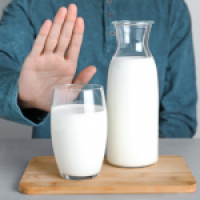Is Coffee Bad for You?

DEPENDING ON WHO YOU ARE, COFFEE CAN EITHER BE GOOD FOR YOU OR BAD FOR YOU.
Coffee is good for you. No, coffee is bad for you. Coffee is good for you, no, wait…we mean coffee is bad for you…errrr…we think…
Sound about right?
This has pretty much been the way that the debate over the healthiness of coffee has progressed for decades. One minute coffee is good for you, the next minute coffee is bad for you. Insert some recent scientific findings regarding coffee, and poof! You have new news about coffee.
Trying to figure out whether it is a good idea to drink coffee or whether you should kick the habit of having your morning cup of Joe can be mind boggling.
So, what’s the answer? Well, it depends on a whole lot of things. Not what you wanted to hear, was it?
Sorry.
Let’s start off looking at why coffee is good for you.
Why Coffee is Good for You
Coffee definitely has some very good qualities. It is super high in anti-oxidants which help to fight aging and can protect against certain diseases.
Reduced Risk of Diabetes
Coffee has been shown to reduce the risk of developing Type 2 diabetes. Of course, that probably didn’t hold true for folks who were dumping tons of sugar in their coffee. This means that these studies did not include those really sweet coffee drinks, whether frozen in summer or topped with nutmeg and cinnamon in winter.
Reduced Risk of Alzheimer’s and Parkinson’s Disease
Coffee also has been shown to reduce the risk of developing Alzheimer’s disease by up to 65% and Parkinson’s disease up to 60%. The interesting part of these studies was that the more coffee people consumed, the greater the benefit of disease prevention. In the case of Parkinson’s disease, it is believed that caffeine is what is responsible for the lower incidence of Parkinson’s.
Reduced Risk of Liver Cirrhosis
Likewise, people who drink 4 cups of coffee a day reduce their risk of liver cirrhosis by 84% and have cleaner arteries than those people who do not drink coffee.
Reduced Risk of Some Cancers
Research suggests that in large amounts coffee may even help prevent certain types of cancers, including liver cancer, skin cancer, and some types of prostate and breast cancers.
Improved Athletic Performance
If you are an athlete, drinking caffeine before working out can increase your metabolism up to 11% which means more calories burned. If that isn’t enough incentive, it has also been shown to increases exercise performance by as much as 12%.
It Makes Some of Us Poop
I don’t know about you, but shortly after consuming my first cup of coffee for the day, I have to poop. Personally, I find this to be a good thing, especially the older I get.
Scientists still don’t know entirely why coffee makes us poop, and it doesn’t happen to all of us – only about 1/3 of people who consume coffee have this response. So, this could be classified either as good or bad depending on your personal schedule of regularity. Since I’m writing this article, though, I have to put this down as a check mark on the “why coffee is good for you” column since for me it is a positive attribute.
In fact, prior to researching this piece I had weaned myself off of coffee completely, but then noticed a rather, um, irregular schedule, so to speak. Once I weighed the pros and cons of drinking coffee and realized the cons really didn’t apply to me, this particular characteristic was enough to convince me to start drinking it again.
Increased Levels of Alertness
Coffee can also pep you up and make you far more alert. This happens because caffeine suppresses adenosine molecules in the brain. When adenosine is kept at bay, dopamine, one of our “feel-good” neurotransmitters (chemicals that send signals in the brain) can function far more efficiently. Thus, we relax and feel good, but we are alert and awake at the same time.
So if all of this stuff is true, why is coffee bad for you?
Why Coffee is Bad for You
For all of its amazing benefits, there are still a number of drawbacks to drinking coffee. Sure, drinking 4 cups of coffee a day may reduce your chance of getting Parkinson’s Disease or Alzheimers, but what about the other things coffee does to you?
Restlessness / Anxiety
I don’t know about you, but one cup of coffee is about all I can handle in a day. If I have a second cup, I would be climbing the walls. Maybe I’m just a lightweight, but it’s something to think about.
Some people have a low tolerance for caffeine and more than a cup is enough to send them into endless bouts of fidgeting and rambling on at 200 mph. Other people become quite anxious after consuming coffee.
Irritability
Other people can become highly irritable when they consume coffee. The caffeine doesn’t just make them hyper, it can put them really on edge and make living or working around them less than fun. If you already know this is you, take one for the team and lay off the coffee in hopes that 50 years from now you won’t get Alzheimers. Chances are if you are that irritable on coffee, your family, friends, and coworkers may see it it that you don’t make it another 50 years.
“Caffeine Crash”
Then, there’s the crash that comes when caffeine leaves your body. Within about 4-6 hours your caffeine level drops by half. If you started out the day tired or were just trying to stretch out being awake a little longer by drinking some magical coffee, it’s about this point at which you could lay down on a sidewalk in the middle of New York City and take a nap. Your body will demand sleep in exchange for the state of overdrive it has been in since you drank that cup of coffee.
That crash you feel when you come down off of a caffeine high is because the adenosine that the caffeine was holding at bay now comes back and blocks the “feel-good” dopamine. You are no longer feeling good, relaxed, and awake. You are now exhausted and your thinking is somewhat fuzzy.
Increased Stress Hormones
There’s more bad news about coffee. Drinking coffee raises our catecholamines which are stress hormones that are made by our adrenal glands. They are part of our fight or flight response and are generally not a good thing to promote – especially for extended periods of time. High catecholamine levels can contribute to rapid heart beat, heavy sweating, and high blood pressure. Drinking coffee all day long can cause your body to think it is under more stress than it actually is.
Increased Risk of Heart Attack
Some of us possess a gene that makes us metabolize caffeine much slower than other people. Cool, right? More bang for your buck! Wrong.
In people who metabolize caffeine at a markedly slower rate, there is a much higher chance that they can have non-fatal heart attacks, according to the Journal of the American Medical Association. Not so cool.
Pregnancy Concerns
If you are pregnant, be aware that caffeine can easily cross the placenta. There is a small risk of miscarriage associated with coffee consumption. If you are breastfeeding, your baby is also getting a jolt of caffeine since it also is passed through breast milk.
Insulin Resistance
Are you a person who suffers from insulin resistance? That is, are your cells becoming less responsive to the insulin your body produces? This is a common condition that precedes pre-diabetes and diabetes. If this is you, listen up. The caffeine in coffee worsens the condition known as insulin resistance.
Sugar Addiction
There is also the matter of how most of us drink our coffee. It is safe to say that most of us do not drink black coffee. We tend to like it full of sweet sugary syrup topped with whipped cream.
Who doesn’t love those coffees you can get at a drive-thru window on your way to and from work, on the way to the grocery store, before and after then gym, and after dropping off the kids at soccer practice? Tastes great, but the sugar is doing a number on your system, not to mention adding to your waistline. Sugar, like caffeine, is highly addictive and keeps us coming back for more.
Insomnia
Coffee consumption can lead to insomnia. It takes up to 6 hours for the caffeine you consume in a cup of coffee to decrease by half. It takes another 6 hours for the remaining half to be decreased by half. After 12 hours, you still have about 1/4 of the caffeine you consumed with your morning cup of coffee in your bloodstream.
Even if you only drink coffee in the morning, studies have shown that you can have significant sleep disruption as a result. It is recommended to have coffee no later than 2 PM, because whether you realize it or not, your sleep is being disrupted.
Final Verdict
Coffee has its pros and it has its cons. There is no absolute answer as to whether or not we should drink coffee as a whole. Instead, it boils down to who you are, what your health circumstances are, and how you consume your coffee – black or super sweet like a dessert. Ultimately, you must know yourself and know the risks to understand if in your particular case the benefits may outweigh those risks.



